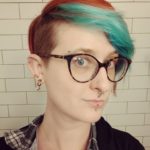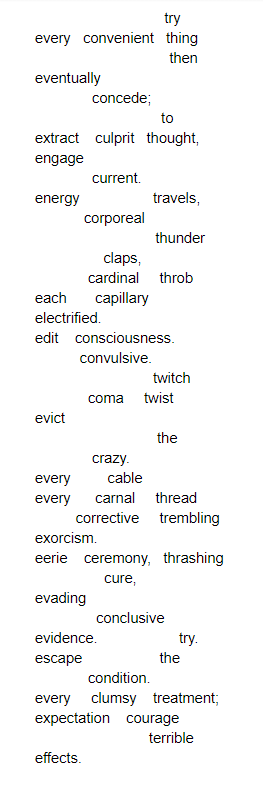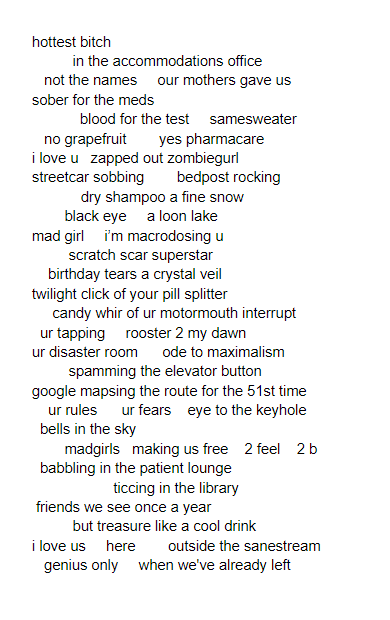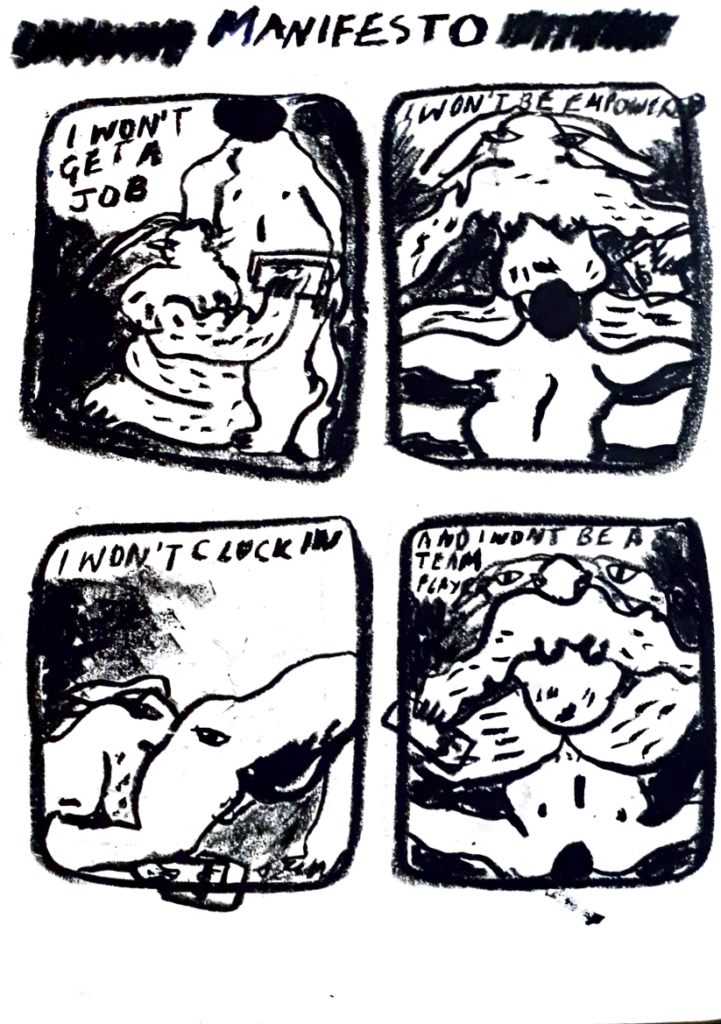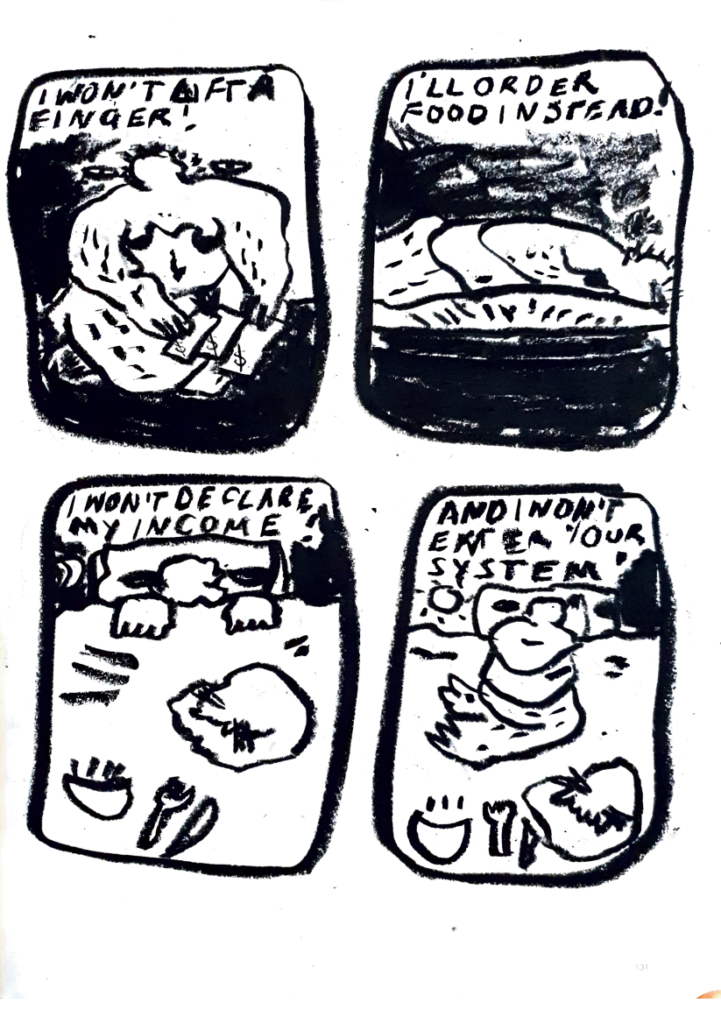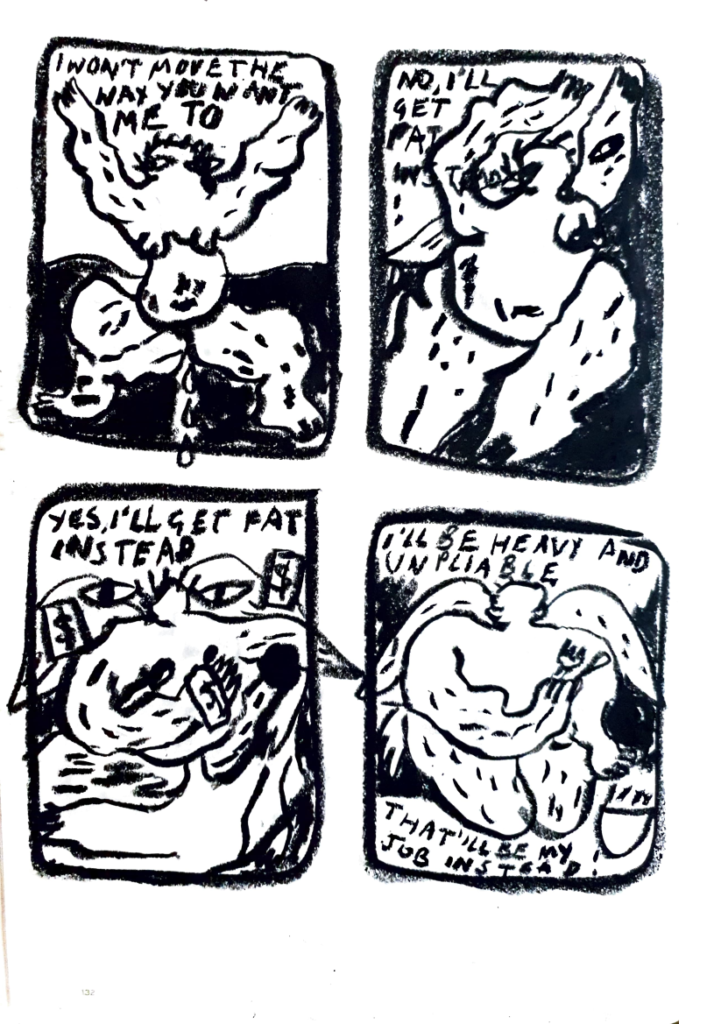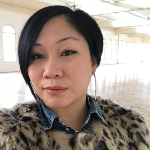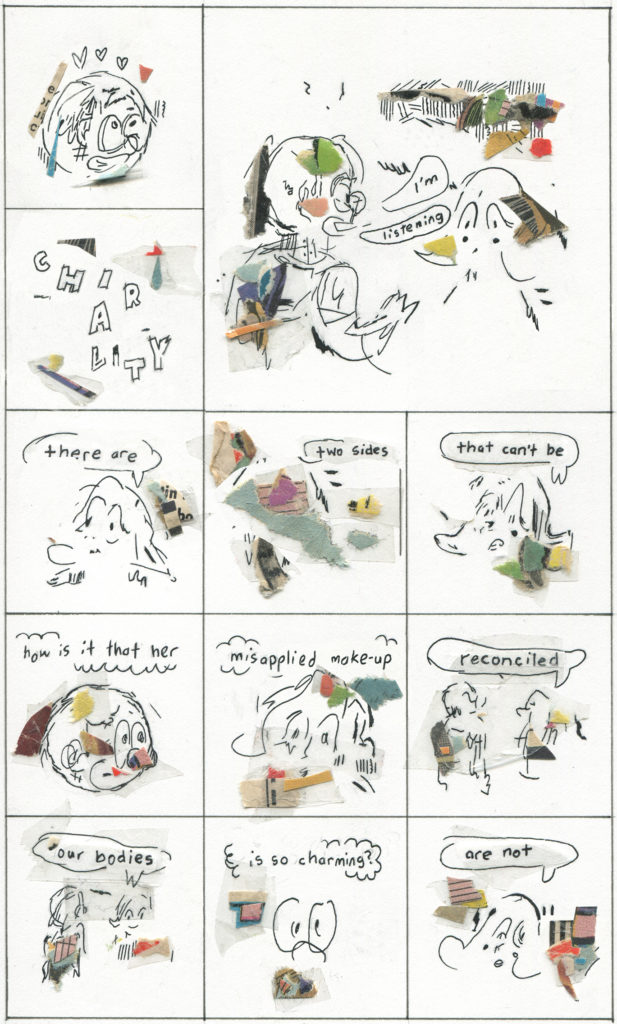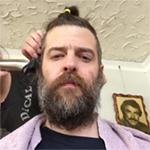Spectrums of Madness
social worker <- -> psychiatric patient I am a social worker, a psychiatric survivor, and current consumer. My clients do not know this. They do not know that every morning and night I take a handful of pills to make sure I can meet the demands of society and capitalism. The world has no place for me when I’m not well. When I’m hypomanic, I will take days off work so that I can write, fuck, and spend money. When I’m depressed, I will take days off work to lay motionless in bed for hours on end. At its worst, I end up admitting myself to a psychiatric hospital. My finely tuned cocktail of meds allows me to approach each day with the clarity and patience I might not have if I swing too far in either direction. What does it mean, then, for me to exist as a social worker, a future therapist, and a patient simultaneously? In Exploring Identities of Psychiatric Survivor Therapists: beyond Us and Them, contributor Kristina Yates writes that therapists “are only as good as the work they have done on themselves.” I have done the work and I am still doing the work to be the best James I can be. I engage in therapy twice a week with two of the best therapists I could ever dream of. I believe that my history as a psychiatric survivor will allow for a more authentic empathy. To be clear, this does not necessarily mean that I will self-disclose my past to all clients. I self-disclosed recently to a client who has a bipolar II diagnosis—just like me. She lamented about how she will never be able to do the two things she most wanted: hold down a job or maintain relationships. I remember panicking for a second before I said, “hey, listen, I have the same diagnosis. I have a job. I have meaningful relationships. It’s possible.” What ensued was a powerful dialogue about how the world labels us as “sick,” or “crazy,” and so we go around calling ourselves exactly that when in fact we are so much more. Yates goes onto say that an alternative narrative exists within the psychiatric survivor moment; a narrative about the “possibility of wellness or a good life for many people who have been given psychiatric diagnoses.” Through strategic self-disclosure, I demonstrated to this client that it is indeed possible to be “well” and bipolar. Even still, occupying the space of psychiatric survivor and patient feels precarious to me at times. I worry: what will happen when I, inevitably, have another bipolar episode? How will I be able to maintain a private practice full of clients with potentially high needs when my own needs are quite high as well? How can I help other people when there are days when I can barely help myself? These are all questions that other survivor/therapists have in common—it is important for me to remember that my past does not dictate my future.
self harm as self-destruction <- -> self-harm as survival I have an extensive history of self-harming behavior, going back almost 14 years. It is a hard habit to kick when it is sometimes the only source of comfort and release during a distressing time. I had a really unprofessional, unhelpful, and cruel therapist growing up as a teenager. When I shared with her that I was cutting, she would invite my mother into the room and make me show her. She threatened to institutionalize me—a threat that was very real given I had already one inpatient stay under my belt before the age of sixteen. I came across a journal entry from December 2nd, 2010 in which I write that if I wasn’t allowed to cut, then I would not eat. I had already been starving myself at that point. Like cutting, it felt good. My therapist told me I was “refusing treatment,” but looking back on it now, I do not know what treatment she was even offering me. My cutting, to her, was significant in terms of the risk of suicide, and yet, she did nothing to ease my suffering. “You’re mutilating yourself,” she would tell me, but I begged to differ. For me and individuals like Clare Shaw, a contributor to Searching for a Rose Garden: Challenging Psychiatry, Fostering Mad Studies, self-injurious behavior is done more often than not as a means of survival and is a conscious decision to stay alive: “it’s a uniquely powerful decision to make…there is immense hope and strength, and that in engaging with death we also engage with life: what it means to be alive; what we want from our lives.” If you had asked me why I was cutting back in 2010 I would only have been able to articulate that it simply felt good. Now I see that cutting was a powerful coping skill; a way of “preserving and affirming life.” Cutting, of course, preserved me by keeping me alive during period of suffering. More than that, though, cutting affirmed me by being a physical representation of my internal distress. In her efforts to prevent me from cutting, that therapist of mine only further put a wedge between us. She didn’t see me. She didn’t hear me. She tried to remove my agency and stop me from exerting the only control I had over my life at that time. She simply did not understand that cutting was not a means of destruction, but rather, survival. I rarely cut these days, although it happens sometimes. What has helped me the most is my network of supports. I have two therapists who make me feel safe, cared for and heard, and a psychiatrist who has spent more time listening than prescribing. We have all put in the work to make sure I stay alive.
Katie <- -> James
Katie lives inside of me and she doesn’t even have to pay rent. Katie is James; James is Katie. I am a transgender man and Katie was the short version of my birth name. Katie exists, even in this moment in time, as a teenage girl. She’s not an ordinary teenage girl though—she’s crazy. She hurts herself compulsively and worries—if not scares—others in her life with her frequent extreme emotional states. It is Katie who comes to visit when I, James, am lying peacefully in bed at night mere moments from sleep. She creeps into my psyche and pokes and tears at all of my sore spots until I desperately need a release from the pain caused by trauma. The thing about Katie, though, is that she doesn’t mean to hurt me. She’s usually trying to lead me to something deeper within myself.
In my past musings on Katie, I have asserted that she had to die so that James could live. Upon further reflection I have realized that Katie and James can coexist. I am okay with sharing this space with her. My Gestalt therapist pointed out that it appeared that the battle between the Katie and James was like two waves competing for who got to be the ocean. Indeed, on many days, it does feel like a battle. Katie is traumatized, timid, and not able to appropriately self-regulate. James is at peace, thriving and has deep insight into his moods. There are days where Katie wins, and that’s okay; I simply set the bar lower on those days. It is important to note that Katie, also, cultivated a life worth living for James. It is Katie who pursued psychiatry, therapy, and social work. It is Katie who pursued the social and medical transition into James.
My therapist recently posed the theory: what if Katie was never actually suicidal? “It’s plausible,” I told him. He went on: what if Katie was simply responding to the external stimuli around her? That landed for me. Katie wasn’t “too much.” Everyone else was simply not enough. So no, perhaps Katie was never actually suicidal. Perhaps she was simply after something far richer than what was offered around her.
All of My Selves I have spent years agonizing over whether Katie and James can share a body, and I have spent nearly as long wondering if my tendency for self-harm totally discredits my work as a social worker. What if I could simply, just be, and relish in the plurality of myself, my body, and my work? I am reminded of my undergraduate thesis on Orlando, by Virginia Woolf. Orlando, the central character, exists across centuries, and survives heartbreak, war, and a fantastical gender transition. Above all else, Orlando takes interest in the fact that one does not have to live as the same self for the entirety of one’s life. It is true that after 22 years of living as Katie, I was utterly sick of her. After beginning my transition in 2016, I did everything I could to banish her from my mind and body. 2020, for me, has been about making my peace with Katie. I looked to Orlando for advice. Orlando’s life spans four long centuries and by the 17th century, Orlando is “sick to death of this particular self. [She] want[s] another.” The use of “another,” does not mean death of the old self, but rather a coexisting of identities. Every day I work to become the best version of myself. I realize, now, that my best self is equal parts Katie and James. Katie might not be how I present anymore, but she is still inside of me. I want to be the social worker and therapist that Katie needed when she was younger. I want to show up for other queer and trans folks, for the bipolar kids and teens, and show them that it is possible to live a full life and do meaningful work. I will come to these folks as James, with Katie’s scars on his arms, but I will come ready and willing to fight for them.
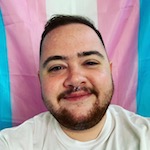
James Macaulay McManus is queer/neurodivergent/trans man/social worker who hopes to open a private therapy practice.

 BACK TO ISSUE
BACK TO ISSUE

